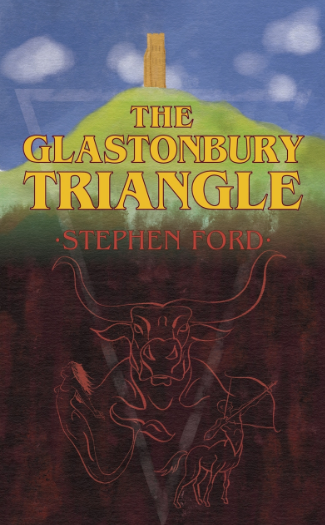Reviewed by Ephantus Gold
“The Glastonbury Triangle” is Stephen Ford’s third book, following “Destiny of a Free Spirit” and “Walking out of the World.” It is a satirical dystopian thriller with copious helpings of political commentary infused with the mysticism of one of the most enigmatic towns in Britain, Glastonbury. Renowned for its Arthurian myths, Ley lines (a mytho-historical construct of early 20th-century myth that exposes ancient sites to have been placed consciously on a linear line on the landscape), and goddess worship (comprises a significant portion of the town’s religious heritage), Glastonbury is the site where state surveillance, religious revival, and media spectacle converge. What emerges is a story that feels both timeless and deeply unsettling, and which asks whether there really a difference between religion and politics if both are ultimately about controlling what people think and do. Purchase Here.
Journalist Simon Chewton from The Daily Trumpet arrives in Glastonbury expecting nothing more than to cover the new Knights of Camelot theme park, run by the Marquess of Mendip. Instead, he is sucked into a maze of missing persons, secret experiments, and mounting hostilities between pagan groups, Christian crusaders, and the guardians of “acceptable” belief for the state. His journalism loses its protective detachment- safety through neutrality- instantly as forces at play prove to be far more sinister than the quaint eccentricities he had arrived to mock.
Once it’s clear he’s digging for information where he shouldn’t, we see him encountering hostility from state authorities monitoring “unapproved” ideas, churchmen who fear losing moral ground and pagan organizations wary of interlopers. He is no longer considered a reporter but a meddler who may leak dangerous truths. His relationship with Jenny develops but complicates matters further. She’s enmeshed in goddess spirituality, and through her he’s pulled further into rituals and beliefs he once mocked. This personal tie makes his choices more costly.
All of the themes in this book are about power and belief, and how they get entwined until you can no longer separate them. We also find the motif of myth and identity, which is seen in the way in which Glastonbury’s myths are used by different sides in a bid to empower themselves or over other individuals. It also connects to the way one builds their own sense of self, from whatever belief they hold. The book also goes on to maintain that there can never be neutrality as a myth. This and other similar themes are well served and most effectively sustained on the character arc of the protagonist.
Fans of dystopian satire and readers who have no problem with some mysticism and darker cultural critique will love this one. It is a book that is not so much for people looking for light escapism but for those who like books that push at politics, religion, and identity and ones that ask uncomfortable questions. Its prose is clean and simple, and its characters are well-honed. Simon is the anchor and his evolution from a detached reporter to a trapped participant is the book’s strongest part. Jenny comes out as a love interest and also a doorway into the spiritual side of Glastonbury, but all too frequently more symbolic. “The Glastonbury Triangle” is not an easy read- it’s challenging, brain-stimulating, and textured. It is the kind of book that lingers with you because it keeps poking at questions that relate to everyday life- who we trust, what we believe, and how easily power reshapes both
